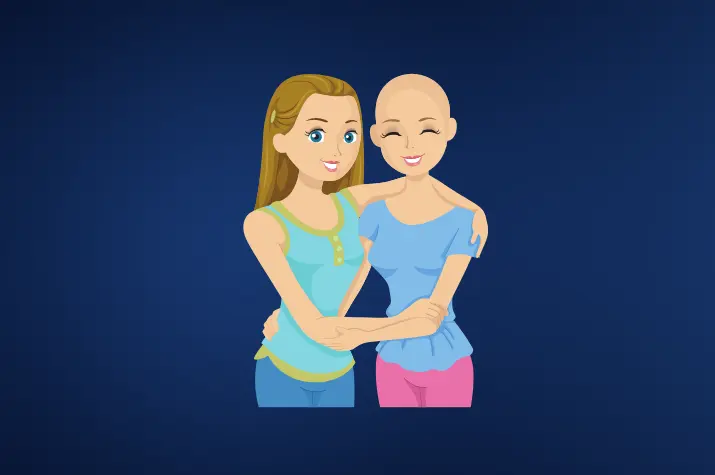
Losing hair can be a difficult event that impacts both your mental and physical well-being.
Even though there are many therapy options for this ailment, being a part of a support group can be very helpful in managing symptoms and navigating the road to recovery.
1. Emotional Support and Understanding from Peers
A variety of feelings, such as worry, irritation, and self-consciousness, can be triggered by dealing with hair loss. By joining a women’s hair loss support group, you can interact with others going through similar struggles in a compassionate and safe setting.
It can be quite reassuring and affirming to share your experiences, anxieties, and worries with others who get what you’re going through.
You can discover a community of individuals in a support group who can provide you with comfort, empathy, and encouragement, making you feel less alone on your journey.
2. Practical Advice and Information Sharing

Support groups for those experiencing hair loss can be an invaluable source of useful guidance and knowledge exchange. Members can discuss their own experiences with drugs, vitamins, and hair restoration techniques, providing firsthand knowledge of the benefits and drawbacks of each.
Furthermore, dermatologists, trichologists, or hair loss experts can be invited to participate as guest speakers at support group sessions. These professionals can provide advice and address questions about the treatment of hair loss.
Additionally, support groups can be an excellent resource for learning about lifestyle choices like nutrition, stress reduction, and scalp care that can influence hair health.
3. Boosting Self-Esteem and Body Image
Losing hair can negatively impact your body image and sense of self, which can result in uneasiness and feelings of self-consciousness. One important thing that might help you get over these obstacles and get your confidence back is joining a support group.
You’ll be able to freely express your thoughts and worries in a nonjudgmental and encouraging setting without worrying about prejudice or shame.
You can begin to confront self-defeating ideas and accept your attractiveness by getting support, encouragement, and good comments from other members.
4. Coping with Psychological and Social Impacts

A person’s relationships, profession, and social contacts can all be negatively impacted by hair loss, which can also have major psychological and social effects.
Becoming a member of a support group can provide helpful coping mechanisms for handling these difficulties and figuring out the day-to-day realities of living with hair loss.
Members can exchange advice on how to tell friends, relatives, and coworkers about hair loss, as well as coping mechanisms for hurtful remarks or inquiries from other people.
Support groups can also provide advice on how to deal with the psychological effects of hair loss, such as social disengagement, anxiety, and sadness.
Support groups can also help you manage stress and preserve emotional resilience by facilitating conversations on coping tactics like mindfulness, relaxation techniques, or cognitive-behavioral strategies.
5. Finding a Sense of Community and Belonging
The feeling of camaraderie and belonging that hair loss support groups provide is among the biggest advantages of joining one. It can become quite isolating to have hair loss, particularly if those around you aren’t able to understand or support you.
A varied network of people who can relate to you and give support, encouragement, and empathy can be found in a support group. Developing relationships with other members can provide a sense of acceptance and belonging by easing emotions of loneliness and isolation.
Additionally, support groups can provide chances for companionship and social interaction, offering a network of peers who are understanding and accepting of you for who you are.
Conclusion
There are several advantages to joining a hair loss support group, such as psychological support, useful guidance, increased self-worth, improved coping mechanisms, and a feeling of camaraderie and inclusion.
Engaging in active participation in a support group can help you make important relationships, acquire insightful knowledge, and deal positively and resiliently with the problems of hair loss.
About The Author:
Stacey Smith is a freelance health writer. She is passionate about writing about women’s health, dental health, diabetes, endocrinology, and nutrition and provides in-depth features on the latest health news for medical clinics and health magazines.




